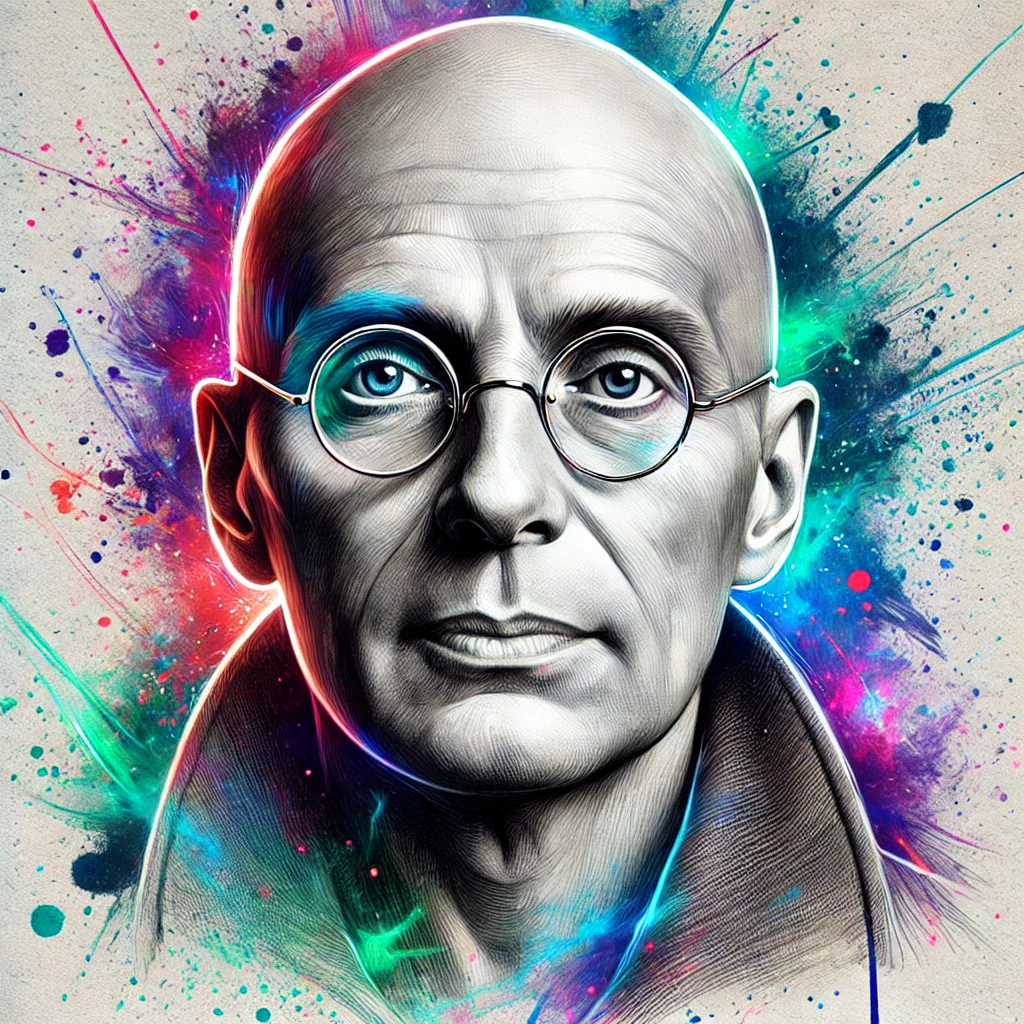Max Weber’s views on religion (Detail Here) are central to his broader analysis of society, modernity, and the development of capitalism. Unlike Karl Marx, who saw religion primarily as an instrument of social control, Weber approached religion from a sociological perspective, emphasizing its role in shaping economic behavior, culture, and social change. Weber’s most influential work on religion is found in his study of the relationship between religious ethics and the rise of capitalism, particularly in The Protestant Ethic and the Spirit of Capitalism.

1. The Protestant Ethic and the Spirit of Capitalism
Weber’s most famous contribution to the sociology of religion is his analysis of the role that Protestantism, especially Calvinism, played in the development of modern capitalism. In The Protestant Ethic and the Spirit of Capitalism, Weber argued that the religious values of early Protestantism, particularly those of the Calvinists, created a cultural climate conducive to the rise of capitalism in Western Europe.
a. Asceticism and the Protestant Work Ethic
Weber observed that Calvinist beliefs, especially the doctrine of predestination, had significant implications for individual behavior. According to Calvinism, only a select few were chosen by God for salvation, and this fate was predetermined, making it impossible for individuals to change their destiny. However, a person’s worldly success could be interpreted as a sign of being among the elect, which led to an intense focus on hard work and success in worldly affairs.
This religious belief fostered what Weber called the Protestant work ethic, a disciplined, rational approach to life that emphasized hard work, thrift, and self-discipline. Calvinists were encouraged to reject idleness and avoid luxury, viewing their worldly success not as a path to indulgence but as a moral duty. The rational, methodical approach to work that emerged from this ethic became the foundation of the capitalist spirit.
b. Capitalism as a Rational Economic System
Weber contrasted the Protestant ethic with the pre-capitalist economic systems, which were often characterized by tradition, subsistence living, or short-term profit-seeking. In contrast, the capitalist economic system, as influenced by the Protestant ethic, was based on the rational pursuit of long-term profits and the systematic organization of labor and production.
Weber argued that the Protestant ethic helped create the cultural and psychological conditions necessary for the development of rational capitalism. It encouraged individuals to engage in disciplined, continuous work and to reinvest profits into their enterprises rather than spending them on personal luxuries. This process of rationalization, where individuals approached their work in a methodical and goal-oriented manner, was central to the rise of modern capitalism.
2. Religion and Rationalization
Weber’s analysis of religion is closely tied to his broader theory of rationalization, which refers to the process by which traditional and spontaneous ways of life are replaced by methodical, calculated, and efficient systems of organization. Weber saw this process occurring in various spheres of life, including economics, law, politics, and religion.
In his view, religion played a key role in promoting rationalization by encouraging individuals to act in ways that were systematic and goal-oriented. However, Weber also recognized that religion itself was subject to rationalization over time, particularly in the development of doctrinal systems, ethical codes, and formal religious institutions.
a. The Disenchantment of the World
One of Weber’s most famous ideas is the concept of the disenchantment (Entzauberung) of the world. He argued that as societies modernize and become more rational, they move away from magical or supernatural explanations of the world. Instead of relying on religious or mystical explanations for natural and social phenomena, people increasingly turn to science, technology, and bureaucratic systems of organization.
In traditional societies, religion provided a sense of enchantment, offering meaning, purpose, and comfort through rituals, myths, and supernatural beliefs. However, with the rise of rationalization, religious belief systems became more formalized, and their mystical elements were stripped away. This process led to a sense of disenchantment, where the world became increasingly explained in impersonal, scientific terms, and religious beliefs lost their immediate power over people’s lives.
b. Religion as a Source of Meaning in a Rationalized World
Despite the disenchantment brought by rationalization, Weber did not believe that religion would disappear entirely in modern society. Instead, he argued that religion would continue to play an important role by providing individuals with a sense of meaning and purpose in an otherwise rationalized and bureaucratic world.
For Weber, religion helped individuals cope with the existential challenges of life, including suffering, death, and the search for meaning. Even in a rationalized society, religion could offer moral guidance and a sense of connection to something greater than the self. However, the form and content of religious belief were likely to change, becoming more individualized and less tied to traditional institutions.
3. Comparative Study of World Religions
Weber’s analysis of religion was not limited to Protestantism. In his later works, such as The Religion of China, The Religion of India, and Ancient Judaism, Weber conducted a comparative study of the major world religions to explore how different religious ethics influenced the development of various social and economic systems.
a. Religion and Social Structure
Weber argued that different religions produced different types of social structures and economic systems. For example, he compared the development of Confucianism in China with the development of Protestantism in the West. In China, Confucianism emphasized harmony, order, and the fulfillment of social roles, which led to a less individualistic and less economically dynamic society than the West.
Similarly, in India, the religious philosophy of Hinduism and its associated caste system created a social order that discouraged economic mobility and individual entrepreneurship. In both cases, Weber argued that the ethical and cultural values promoted by these religions shaped the economic and social systems that developed in those societies.
b. Theodicy and Religious Ethics
One of Weber’s key interests was the concept of theodicy, or the religious explanation for the existence of suffering and evil. Different religions offered different forms of theodicy, which shaped their followers’ worldviews and approaches to life. For example, Weber noted that in some Eastern religions, such as Hinduism and Buddhism, suffering was explained as a consequence of karma and the cycle of rebirth. This led to a more passive acceptance of social inequality, as individuals believed their current situation was the result of their actions in past lives.
In contrast, the Protestant ethic promoted an active engagement with the world, as individuals sought to demonstrate their worth through hard work and success. Weber believed that these differences in religious ethics had profound effects on the development of social and economic systems.
4. Religion and Social Change
Weber saw religion as a dynamic force that could inspire significant social and economic change. Unlike Marx, who viewed religion as primarily a tool of social control, Weber believed that religious ideas could be revolutionary and transformative.
a. Charismatic Authority
One of Weber’s key contributions to the sociology of religion was his concept of charismatic authority. He argued that certain religious leaders—such as prophets, revolutionaries, or reformers—possess charisma, a personal quality that allows them to inspire followers and challenge established social orders. Charismatic leaders can spark religious movements that promote social change by offering new visions of justice, morality, or salvation.
For example, Weber saw figures like Jesus, Muhammad, and Martin Luther as charismatic leaders who inspired transformative religious movements. These movements had the potential to reshape societies by offering alternative moral and ethical frameworks and challenging the status quo.
b. Religion as a Force for Modernization
Weber also believed that religion could play a role in promoting modernization. The Protestant Reformation, for example, helped to lay the groundwork for the development of modern capitalist economies by encouraging values of hard work, discipline, and individual responsibility. Religious movements could inspire social change by promoting new ethical ideals that align with the demands of a modern, rationalized economy.
5. Weber’s Legacy on the Study of Religion
Weber’s work on religion has had a lasting influence on the sociology of religion and social theory more broadly. His comparative study of world religions and his exploration of the relationship between religious ethics and economic behavior laid the foundation for the modern sociological study of religion.
Weber’s recognition of religion as a dynamic force that could shape and be shaped by social structures continues to inform contemporary debates about the role of religion in society. His insights into the ways in which religious beliefs influence economic behavior, social change, and political authority remain central to discussions about secularization, modernization, and the role of religion in the public sphere.
Conclusion
Max Weber’s views on religion are complex and multifaceted. He saw religion not only as a reflection of social conditions but also as a force that could inspire significant social and economic change. In his analysis of the Protestant ethic, Weber demonstrated how religious beliefs could foster the development of modern capitalism by promoting values of hard work, discipline, and rationality.
Weber also recognized the process of rationalization as both a driver of and a challenge to religion. As societies modernize, religion becomes increasingly formalized and rationalized, leading to a sense of disenchantment. However, Weber also believed that religion would continue to play an important role in providing meaning and moral guidance in an increasingly rationalized world.
Weber’s comparative study of world religions expanded the understanding of how different religious traditions shape the social and economic systems in which they are embedded, highlighting the diverse ways in which religion can influence social life. His work remains a foundational text for understanding the complex relationship between religion, economy, and society in the modern world.
References
- Weber, Max. The Protestant Ethic and the Spirit of Capitalism. Translated by Talcott Parsons, Scribner’s, 1930 (orig. 1905).
- Weber, Max. The Religion of China: Confucianism and Taoism. Translated by Hans H. Gerth and C. K. Yang, Free Press, 1968 (orig. 1915).
- Weber, Max. The Religion of India: The Sociology of Hinduism and Buddhism. Translated by Hans H. Gerth, Free Press, 1958 (orig. 1916–20).
- Weber, Max. Ancient Judaism. Translated by Hans H. Gerth and Don Martindale, George Allen & Unwin, 1952 (orig. 1917–19).
- Weber, Max. “Science as a Vocation.” In From Max Weber: Essays in Sociology, edited by H. H. Gerth and C. Wright Mills, pp. 129–56, Oxford Univ. Press, 1946 (orig. 1919).
- Adair-Toteff, Christopher, ed. Max Weber’s Sociology of Religion. Mohr Siebeck, 2016.
- Adair-Toteff, Christopher. “Max Weber’s Charismatic Prophets: Interpreting Weber’s Ancient Judaism.” Max Weber Studies 12, no. 3 (2012): 283–313.
- Adair-Toteff, Christopher. “Rationalization, Modernity, and Religion’s Future in Max Weber.” Theoria 144 (November 2015): 25–45.
- Marcus, Ralph. Review of Ancient Judaism, by Max Weber (trans. Gerth & Martindale). Commentary 16, no. 6 (June 1953): 554–62.


